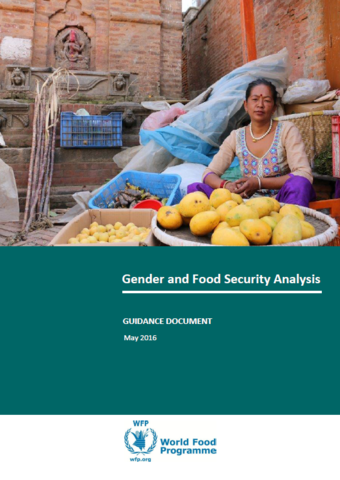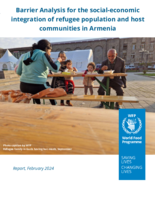
The VAM gender analysis standards support staff engaged in food security and nutrition analysis in their role to provide information necessary to design, implement and monitor targeted WFP programmes and interventions. Gender analysis should be mainstreamed throughout within the three pillars of food security analysis; access, utilization, and availability. By applying the standards and by utilizing gender-sensitive indicators, the extent of gender disparities will be measured and revealed thereby producing valuable information to inform policies, programmes, and responses.
| Document | File |
|---|---|
| Gender - Can Social Network Analysis Inform African Development Policies?, June 2017 |
PDF | 693.6 KB
Download
|
| Gender - Guidance Document: Gender and Food Security Analysis, May 2016 |
PDF | 1.21 MB
Download
|
| Gender - Thematic Guidelines: Integrating a Gender Perspective into Vulnerability Analysis, March 2005 |
PDF | 547.08 KB
Download
|



